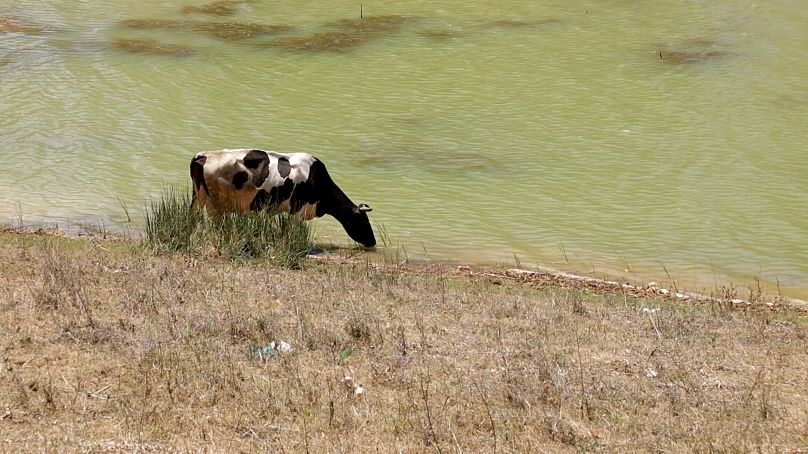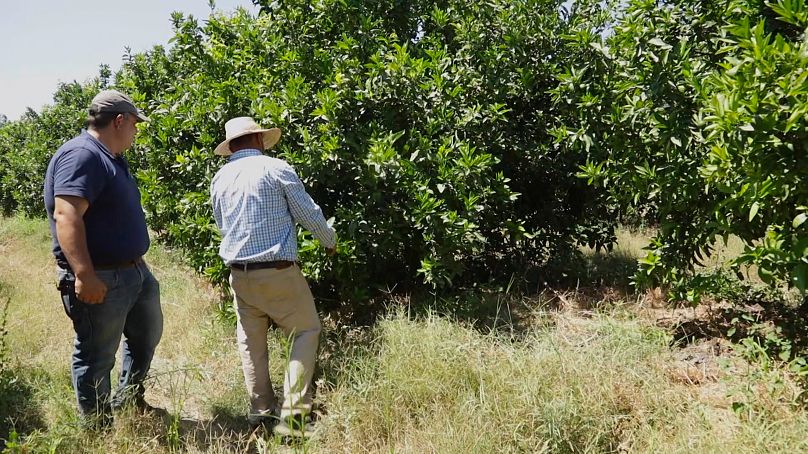Global warming is having a sizeable impact on agriculture in some North African countries.
Global warming is having a sizeable impact on agriculture in some North African countries.
 ADVERTISEMENT
ADVERTISEMENT
 ADVERTISEMENT
ADVERTISEMENT
In Tunisia, for example, a 2016 report by the Food and Agriculture Organization, forecast that drought could deplete national water resources by nearly 30% over the next ten years.
The organization believes that these dwindled reserves could lead to a significant decline in vegetation, resulting in fewer pollinating insects like bees.
Last year, the country had an estimated 12,000 beekeepers, according to the National Agency for the Promotion of Agricultural Investments.
In a bid to safeguard their future, the Tunisian government is encouraging tech startups to develop solutions to counter climate change’s effects on nature.
Busy bees
Thirty-three-year-old engineer, Khaled Bouchoucha, is the CEO of IRIS Technologies. He started developing an environmental innovation back in 2011.
“My father is a beekeeper, and we lost a lot of bees that winter,” he told Inspire Middle East. “It was due to the high level of humidity, so, I thought about building an air conditioning system for the beehive.”
With funds of $30,000, he launched an electronic device called the “smart bee”, which monitors bees on a daily basis and sends farmers smartphone updates.
His business created a buzz amongst local farmers, resulting in Bouchoucha generating sales of $50,000 last year.
“The honey production was not the same before [using the device], it was not organized,” says local beekeeper, Walid Alhamdi. “I had no idea of how much honey bees [could] produce, but with this device it’s simpler for me.”
Water scarcity
In 2018, a World Bank report stated that more than half of North Africa’s water consumption exceed what was naturally available.
Forty-year-old software engineer Yeser Bououd is the CEO of Ezzayra, and with capital of $150,000 he developed water-saving technology for farmers.
Having launched the project four years ago, Bououd now serves 100 Tunisian farms.
The inventor’s software consists of electronic sensors, which are positioned in soil where plants grow and connected to water pumps.
For ease and regular updates, the data can be accessed by phone.
“We managed, at some point, to reduce the water consumption by half in some farms,” said Bououd.
State support
Since 2015, the Tunisian government has supported startups like Bououd’s, alongside around 12 others budding companies.
“They are providing us with solutions and ideas that could help us overcome some major problems, caused by the intensive exploitation of land and water,“ says Faycal Ben Jaddi, the Director of the National Agronomic Institute of Tunisia in the Ministry of Agriculture.
Ben Jaddi believes that such initiatives not only help new businesses, but also motivate young engineers to start their own projects.
The Tunisian government hopes that in the years to come, more innovators will come to the fore to help the agricultural industry overcome environmental challenges, to enable the farming sector to remain an important contributor to national GDP.
SEEN ON SOCIAL MEDIA: HARVEST
Baoudi from Lebanon admires his garlic harvest.












